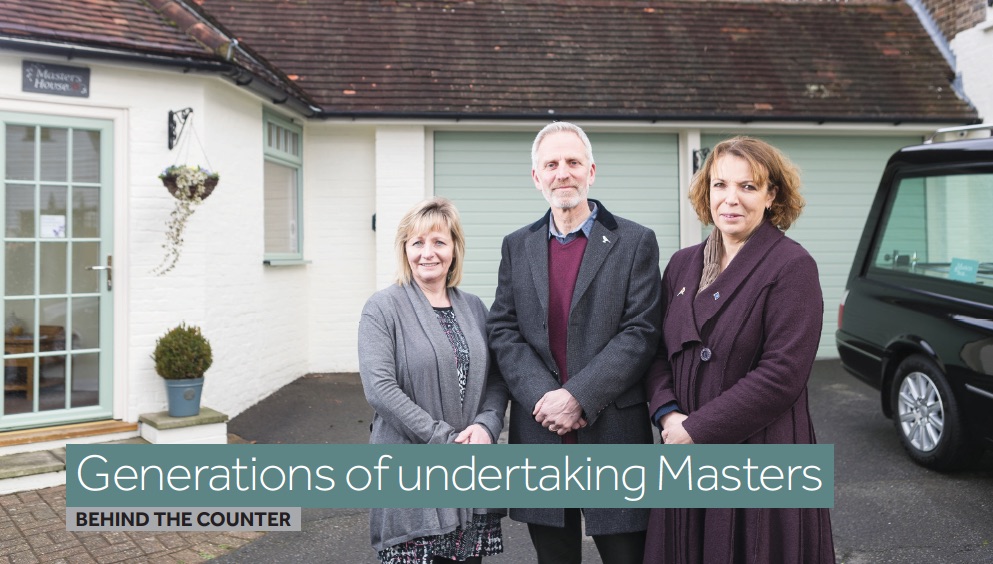Undertaking is among the world’s oldest professions. Ancient Egypt is famous for its careful mummification to preserve the dead with records dating back over 4,000 years, and in the West specialised priests were known to spend 70 entire days with a single body. While the aforementioned services were reserved for wealthy royalty and nobility, today funeral services are an essential part of remembering and saying goodbye to those we care about. In this next edition of Behind the Counter, we meet Ian Masters of Masters and Son – who have been supporting families in Sussex through the process of losing loved ones for more than 160 years.
By Joe Wayte
It feels like I can’t get away from this particular topic in my life right now. Whilst writing this article, the team at BBC Radio 1 is doing some heavy promotion around the office about a new series titled, The Youngertakers.
In my personal life, a great-aunt recently passed away, giving me an opportunity to celebrate her life, as well as watch the funeral director intensely as part of my research. I’ve been to many funerals and they’ve all been different. My great-aunt, for example, asked to be cremated and requested that Händel’s Hallelujah Chorus be played loudly at the point she disappeared behind the curtain. Others have been a much more sombre affair.
“All families are different and each funeral is unique,” Ian told me. “Some choose traditional wooden coffins, while others choose ones made of materials such as willow, seagrass, bamboo or wool. On a few occasions people have come in to personally decorate the coffin. The services we carry out also vary enormously from a traditional church service to no formal service at all. On one occasion we were asked to provide champagne in our service room for a family who wanted a more casual and relaxed event before continuing the celebration of their loved one’s life over lunch at a local pub. We like being adaptable to whatever people ask for to give their family member an appropriate send-off.”
[Read the full article in March 2018 Lindfield Life magazine]
Photos by Dale Reubin


